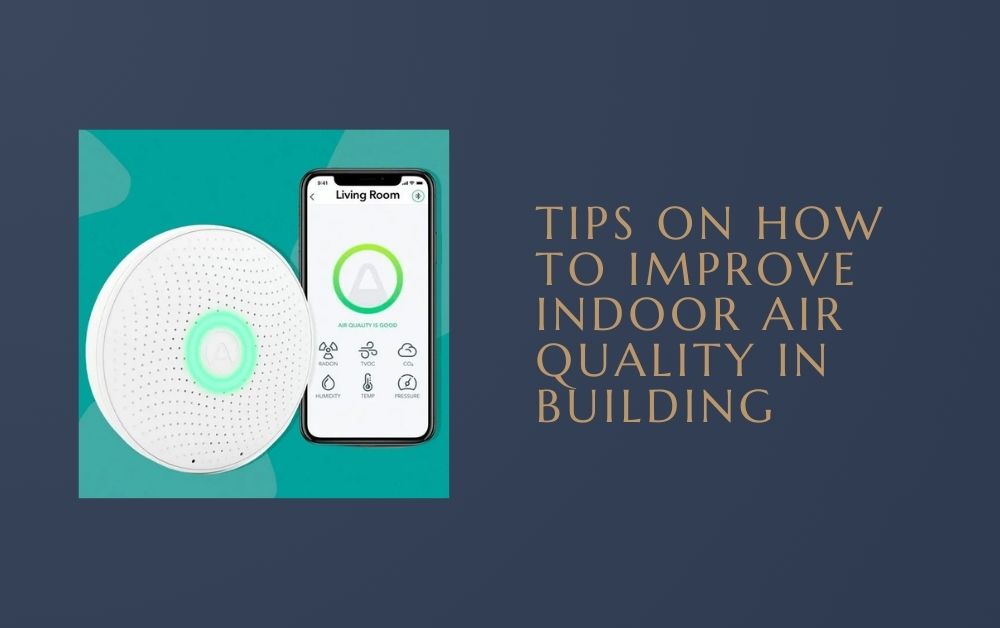
Maintaining good indoor air quality (IAQ) is essential for the health and well-being of everyone who occupies a building. Poor IAQ can lead to various health issues, including allergies, respiratory problems, and discomfort. Fortunately, there are several practical steps you can take to enhance IAQ and create a healthier indoor environment. Let’s explore these tips in detail.
Understanding Indoor Air Quality (IAQ)
What is Indoor Air Quality?
Indoor air quality refers to the condition of the air inside buildings, including homes, offices, schools, and other enclosed spaces. It is influenced by factors such as ventilation, pollutants present indoors, and outdoor air quality.
Importance of Good IAQ
Good indoor air quality is crucial because most people spend a significant amount of time indoors. Poor IAQ can lead to health issues, including headaches, fatigue, irritation of the eyes, nose, and throat, and exacerbation of asthma and allergies.
Note:- For Indoor air quality monitoring services, Quality Care offers reliable solutions to ensure the air you breathe is clean and healthy. With a commitment to excellence and customer satisfaction, Quality Care utilizes advanced monitoring equipment and techniques to assess indoor air quality accurately.Contact Quality Care today to schedule indoor air quality monitoring for your home or business.
Tips to Improve Indoor Air Quality
1. Increase Ventilation
Proper ventilation is key to improving IAQ. Ensure that your building has adequate ventilation systems in place, such as windows that can be opened, exhaust fans in kitchens and bathrooms, and mechanical ventilation systems. Good ventilation helps remove indoor pollutants and brings in fresh outdoor air.
2. Regular HVAC Maintenance
Maintain your heating, ventilation, and air conditioning (HVAC) system regularly to ensure optimal performance. Replace air filters as recommended by the manufacturer (typically every 3-6 months), clean ducts and vents, and schedule professional HVAC inspections to detect and address any issues promptly.
Importance of HVAC Maintenance
Regular maintenance prevents the buildup of dust, mold, and other contaminants in the HVAC system, which can affect IAQ. It also ensures that the system operates efficiently, reducing energy consumption and costs.
3. Control Moisture Levels
Excess moisture indoors can lead to mold growth and the proliferation of dust mites, both of which can negatively impact IAQ. Use dehumidifiers in damp areas such as basements and bathrooms, fix leaks promptly, and ensure proper ventilation in areas prone to moisture buildup.
Importance of Moisture Control

Indoor Air Quality Monitoring
Controlling moisture helps prevent mold and mildew growth, which are common allergens and can worsen respiratory conditions. It also contributes to a more comfortable indoor environment.
4. Regular Cleaning
Regular cleaning of floors, carpets, and surfaces helps reduce the accumulation of dust, pet dander, and other allergens. Use a vacuum cleaner with a HEPA filter to trap small particles effectively. Additionally, wash bedding, curtains, and upholstery regularly to minimize allergen buildup.
Importance of Cleaning
Cleaning removes allergens and pollutants from indoor surfaces, preventing them from becoming airborne and affecting IAQ. It also contributes to a cleaner and more hygienic living or working environment.
5. Use Air Purifiers
Consider using portable air purifiers with HEPA filters to remove airborne pollutants such as dust, pollen, pet dander, and mold spores. Place air purifiers in rooms where occupants spend the most time, such as bedrooms and living areas, to enhance IAQ.
Importance of Air Purifiers
Air purifiers help remove indoor pollutants that may not be effectively filtered out by HVAC systems alone. They provide an additional layer of protection against allergens and improve overall IAQ.
6. Avoid Smoking Indoors
Smoking indoors significantly reduces IAQ as it releases harmful chemicals and pollutants into the air. Establish a smoke-free policy within your building to protect the health of occupants and improve IAQ.
Importance of Smoke-Free Environments
Eliminating indoor smoking reduces exposure to secondhand smoke, which contains numerous toxic chemicals known to cause respiratory and cardiovascular diseases. It also helps maintain cleaner indoor air for everyone.
Conclusion
In conclusion, improving indoor air quality in buildings is achievable through practical measures such as increasing ventilation, maintaining HVAC systems, controlling moisture levels, regular cleaning, using air purifiers, and establishing smoke-free environments. By implementing these tips, you can create a healthier and more comfortable indoor environment for occupants, reducing the risk of health problems associated with poor IAQ.
Note:- To read more articles visit on freebiznetwork.